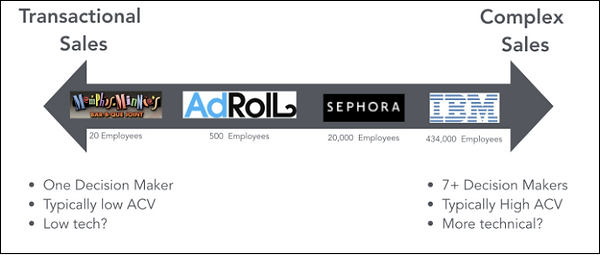
Sales Process
How you do it
Sales process is often referred to as a funnel because it’s ok if some deals don’t make it all the way through the funnel, most of your deals will fall off. It’s ok, if you know what stages they completed. You have to track this process (and do it basically the same every time) to maximize the learning about where customers are having an objection or if the break down is with either the product or process (usually one or the other, but sometimes both!).
To do this process, you’ll think back to what you learned about your prospects through the initial sales interviews.
-
-
-
How do they buy?
-
What do they value?
-
What pain do they have?
-
-
Construct an initial thesis of what stages each of your deals will go through. Likely more stages the more complex the purchase is
Common Mistakes Founders Make
Most of the time when founders set out to design a sales process they over simplify (like not recognizing they need a proposal and a contract) or over complicate (like asking for too much information in the demo process). The trick is to design a process so you can get as much information from the way a deal tracks through the funnel without creating too much process so you slow down or jeopardize the business.
Examples
Here are two examples from the extremes of sales complexity.
First, consider the job of a young “Yelper.” That is a sales rep working at Yelp.com and tasked with reaching out to local businesses to encourage them to advertise on site. Typically the sales process that follows is pretty simple. First, identify a local business in the target territory, then reach out and make contact (probably over the phone). Explain the merits of advertising on Yelp for a restaurant like them. And f inally, collect a credit card. This might sound easy, and trust us, sales is never easy. It is, however, a pretty simple sales process when you think about it. You only need 3-4 steps, might add an education step if the restaurateurs don’t personally use Yelp and need to hear about how their customers are making new purchase decisions with the site.
It’s almost obvious why larger businesses are more complicated to sell to and that’s very simply put, there are more people who work there, and therefore more people who get a say in what is purchased. You might sell into a company that has a separate process for Legal, IT, and Security. Here’s an example of what a sales process could look like if you were selling cloud storage software into a company with 2,000 employees:
First off, they will need to connect with the right people at a company this large. Probably targeted by use case, let’s say the sales rep has been able to get to a Director of Marketing and explained the use case of using cloud storage for marketing materials. The marketer wants more information and will bring the head of IT to the next call. The sales rep needs to demonstrate the use case, pair up the product features with the marketers pain points, and sell the head of IT the security features.
At a company this size it won’t be so easy as to then get a credit card after the demo call. Most likely there will be a purchasing process, a security follow up and a senior manager that approves the expense, so the rep will need to navigate at least these three influencers and create a proposal for the budget owner. If this is enough and there is a verbal yes given on a follow up call, the work is not done. Depending on the type of purchase and the expense this might not be as easy as collecting a credit card number. Most likely after the proposal is approved there will also be a back and forth with purchasing or legal on the contract that will be used for the deal. Once that contract is signed there might also be a process for how to actually get paid for the solution (possibly a PO).
So you can see in the two examples above that the sales process has to conform some what to how the customer is able to buy products. In the 2nd story there is at least people involved in the deal that we know about, but most likely there are other influencers from different departments or users of the software (example: if marketing buys this tool but sales is expected to use it that would bring out a sales operations person and also potentially a sales leader to approve).
Sales Complexity Spectrum:

Related Keywords
Sales funnel, Sales Process, Opportunity Stage Changes.
Related Links
Sales Process best practices (gleaned from working with hundreds of fast-growing SaaS organizations) - Craig Rosenberg TOPO
Sales Process tips from Salesforce
.